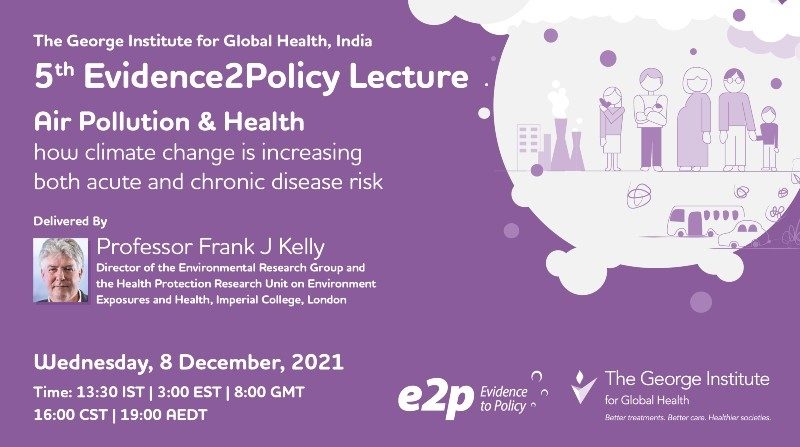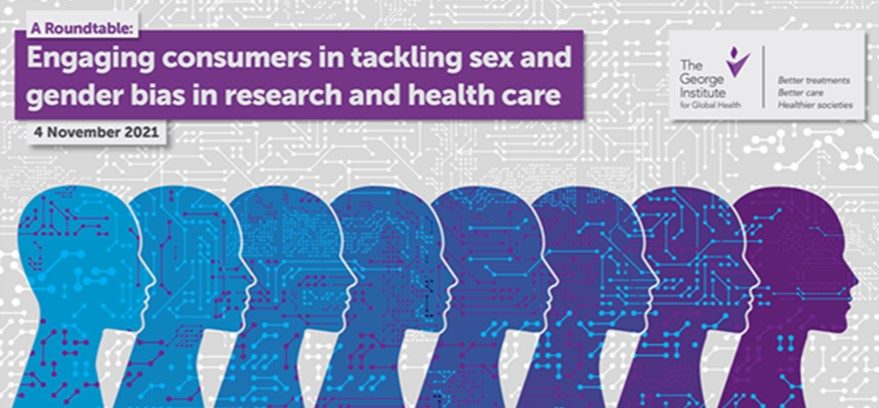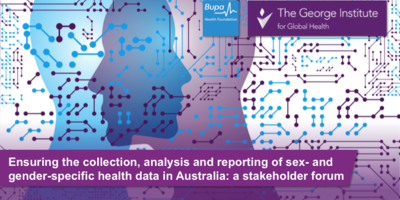Statement from The George Institute for Global Health
As a health and medical research institute committed to improving the health of millions of people worldwide, The George Institute for Global Health welcomes progress made at the 2021 United Nations Climate Change Conference (COP26) towards a zero emissions future. However, with commitments insufficient to prevent devastating impacts on human health and equity, the Institute calls for urgent action to keep the ambition of limiting global warming to 1.5C above pre-industrial levels alive.
COP26 achieved some important commitments towards climate change mitigation thanks in part to strong advocacy from a range of social movements including youth and First Nations and Tribal Peoples. The commitments include pledges by more than 100 countries to end deforestation and reduce methane emissions by 30%. Over 40 countries also committed to transition from coal to renewable energy in the 2030s and 2040s, and fossil fuels were included in the COP agreement for the first time.
However, even if all of the commitments made are implemented in full – which has not been the case with those made at past COPs – projections show temperatures will exceed 2.4C above pre-industrial levels by the end of the century. A rise of that magnitude will threaten food and water security; see rates of non-communicable diseases and injury rise; and undermine decades of hard-won progress on health, sustainable development and human rights, particularly for communities experiencing marginalisation.
“This level of warming is going to be devastating for people everywhere. Climate change is the single biggest health challenge of the 21st century. COP26 was the moment for world leaders to step up and deliver ambitious and just action on climate, but they largely failed to deliver” – Professors Robyn Norton AO and Stephen MacMahon AO, Principal Directors, and Professor Anushka Patel, Vice-Principal Director & Chief Scientist.
Ahead of the conference, The George Institute called for urgent, triple-win actions on climate, health and equity to pull humanity back from the brink, and was encouraged to see progress in some areas. For example, the 2021 Glasgow Climate Pact calls for climate action to promote the right to health; the rights of Indigenous peoples, local communities and others in vulnerable situations; gender equality; and intergenerational equity. Many countries also made important commitments to a lower emissions world.
The lack of greater ambition was disappointing, as was the watering down of the crucial text on fossil fuels at the final hour, and opposition to a requirement for countries to update their national strategies to cut emissions in time for COP27 in 2022. Adaptation is also largely missing from the COP26 text, which urges developed countries to double climate financing to developing countries, but fails to agree to a fund that supports countries experiencing loss and damage as a result of climate change.
“These failures represent a betrayal of future generations. All of us will suffer the health consequences, but those who have contributed least to climate change will be hit the hardest” – Yunyun Zhu, Managing Director China.
“In the face of inevitable increases in global temperatures, it is now a non-negotiable for governments to make greater investments into climate and health research, and health systems resilience. It is essential to prepare for future warming scenarios, with equity at the centre of the climate response” – Professor Vivek Jha, Executive Director India.
With the goal of limiting global warming to 1.5C above pre-industrial levels now recognised to be on life support, The George Institute calls on governments to use the 12 months ahead of COP27 to develop genuinely ambitious, urgently needed Nationally Determined Contributions (NDCs) to address the climate crisis, with increased investments in health and health equity front and centre. These NDCs must be developed with the meaningful involvement of youth leaders, First Nations and Tribal peoples and communities experiencing marginalisation, to ensure equitable climate solutions informed by self-determination principles.
The George Institute is committed to playing its part in the fight against climate change, and we invite all of our public health colleagues to join us.





























